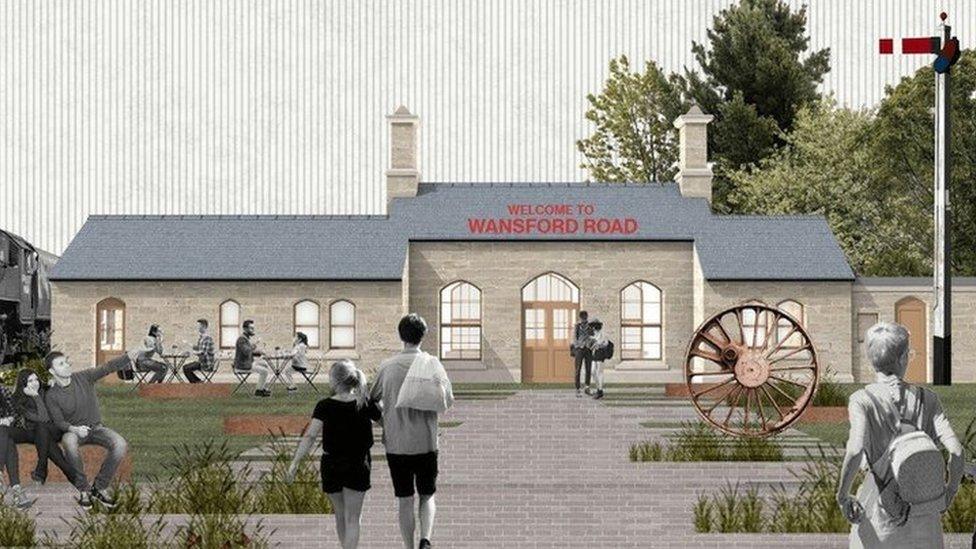Wansford Road station's bricks numbered ahead of Peterborough rebuild
- Published
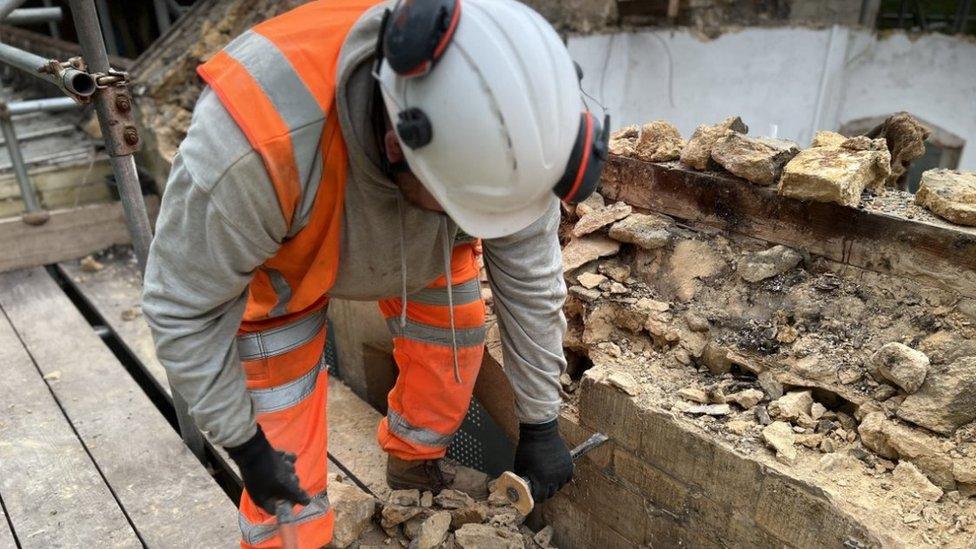
The work has to be slow and careful to ensure the station can be rebuilt correctly
The team dismantling a former Victorian railway station "brick by brick" has to number them all - so it can be rebuilt accurately at its new home.
Wansford Road station in Sutton, Cambridgeshire, has been saved from demolition.
The station was in the path of a project to dual the A47.
Work is under way to take it to pieces and move it to its new home at Nene Valley Railway (NVR), near Peterborough.
The process will take about two months.
The station, which is between the villages of Wansford and Sutton, was built in 1867 but closed to passengers in 1929.
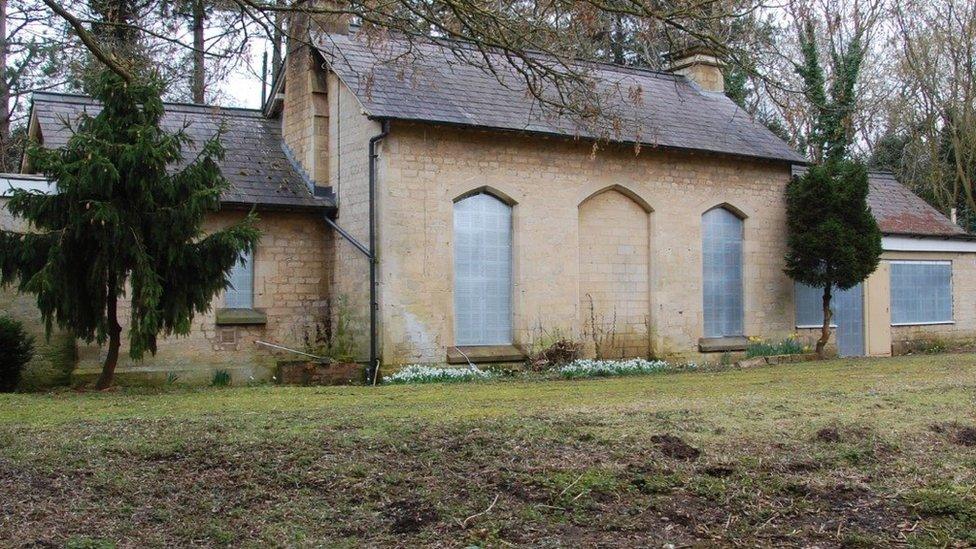
The station between the villages of Sutton and Wansford has been closed since 1929
Both NVR and Railworld Wildlife Haven, external were involved in the plans with National Highways to dismantle and move it.
Site supervisor Jack Ford, from Fordson Developments, said: "It's an interesting job, and we're finding different things as we take it down.
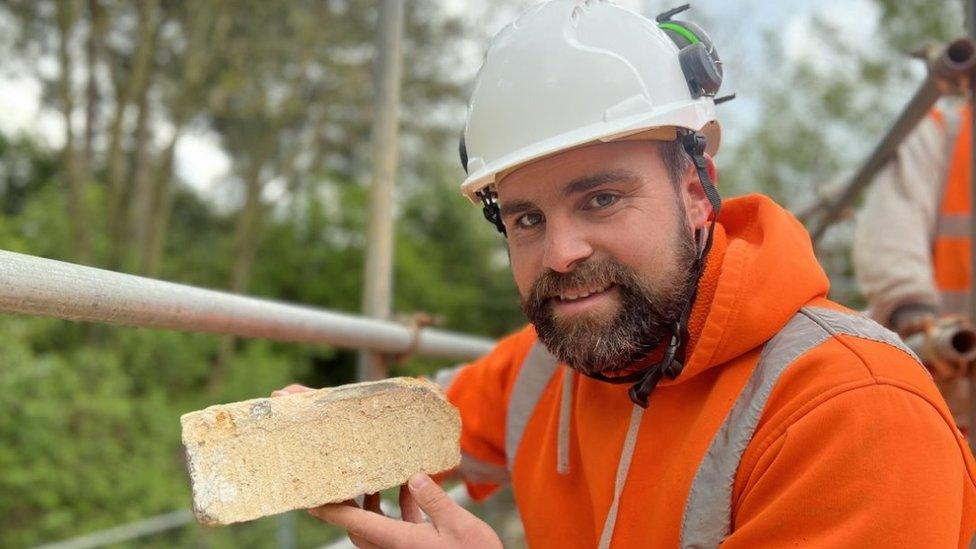
Jack Ford and his team are numbering all the bricks to enable the station to be rebuilt correctly
"We're having to number every bit of stone as we take it down for it to be rebuilt."
With detailed plans and numbering in place, he said: "Hopefully when we rebuild it, it'll all fall back into line again."
Mr Ford admitted it was an unusual project.
"Normally we're building things like this, not having to take them down and move them - so basically it's working backwards," he said.
"We're trying to retain as much as possible, although the roofs won't go back on because we can't say how stressed the timberwork is."
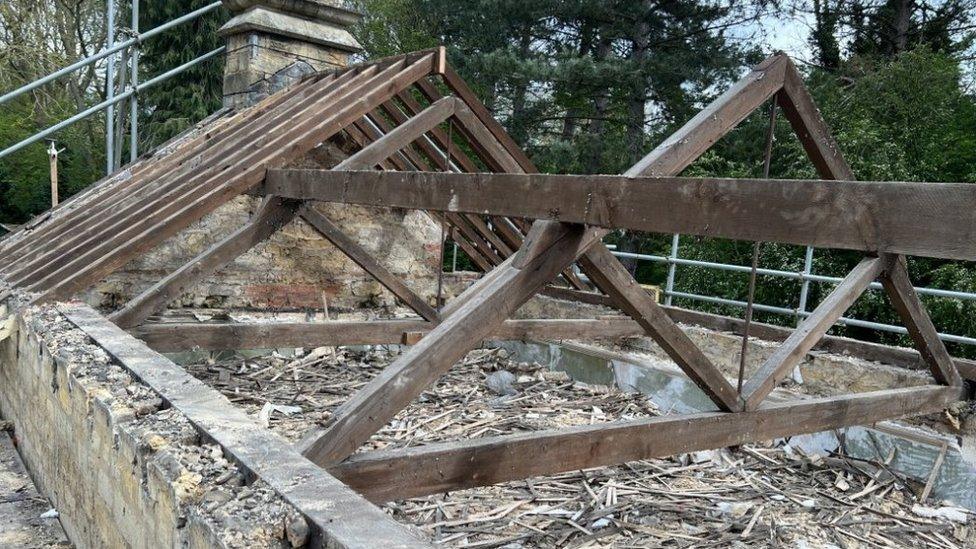
The roof timbers are unlikely to be suitable for the rebuild
Working alongside the building crew is Lucy Mackinson, senior ecologist at Middlemarch Environmental, a consultancy.
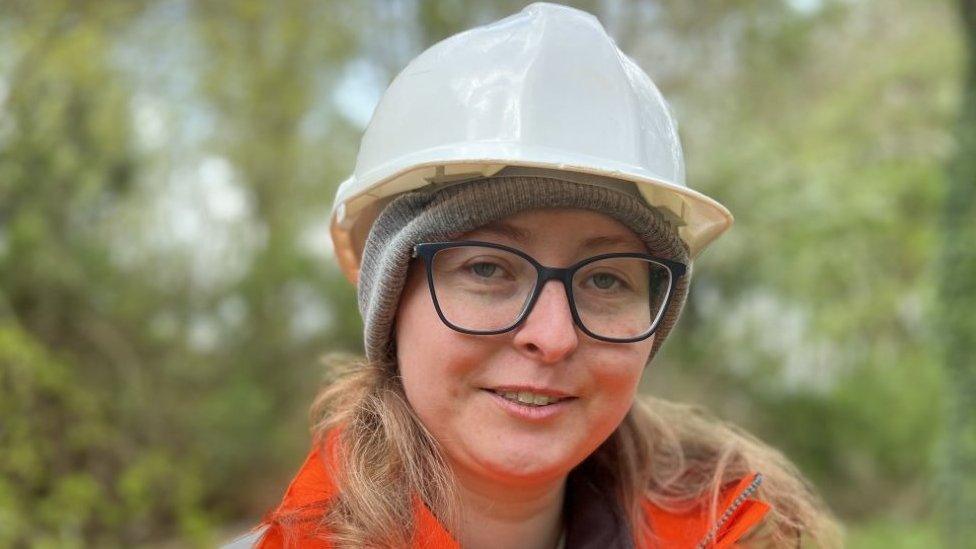
Lucy Mackinson is on hand to help the bats
"I'm here to supervise the soft demolition of the building work," she said.
An NVR spokesperson said plans to move the station had already been delayed by "the need to relocate a population of pipistrelle bats, [but] we finally have started to take off the roof".
Ms Mackinson said some bats had been found and were being moved to a bat mitigation box.
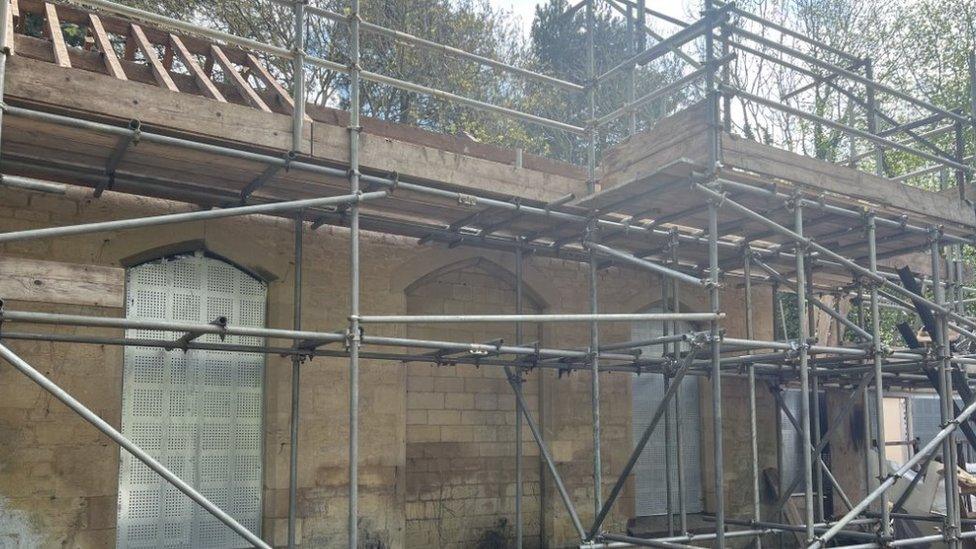
Scaffolding surrounds the station while the work is carried out
"We're making sure we're checking the tiles, all the timbers - and carefully - so as not to injure any bats, just in case," she said.
"Bats are legally protected and their numbers are declining, so anything we can do to protect them is a benefit to them and to our environment."
Stan Bell, a trustee at NVR, said it was fabulous to see the work to save the station finally going ahead.
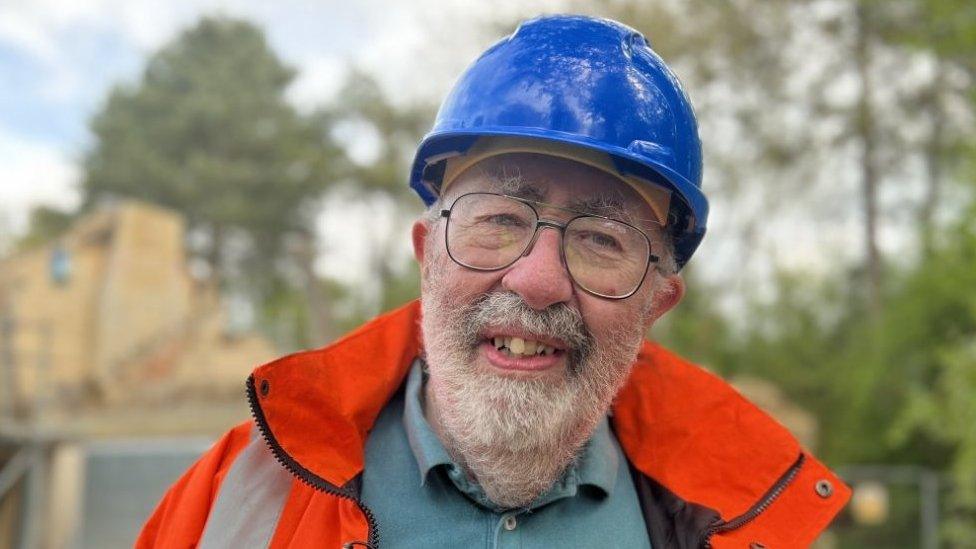
Stan Bell said the project was "wonderful"
"It's such a good example of Victorian architecture - it's too good an opportunity to miss," he said.
He added that many of the buildings at NVR and Railworld were put up as temporary structures 40 years ago and were coming to the end of their lives.
"To be able to replace those with such an iconic building is such a wonderful thing," he said.
"It's very, very important that we save it for future generations.
"The railway formed such an important part of community and society during the last 200 years and it's disappearing faster than you can believe.
"It's fabulous - we've been working towards this for three years and it's almost unimaginable that we've got to this point."
More than £200,000 of funding from National Highways is being used to support the project, which NVR hopes will be completed in the spring of 2025.

Got a story? Email eastofenglandnews@bbc.co.uk, external or WhatsApp 0800 169 1830
Related topics
- Published25 April 2024

- Published23 August 2022
